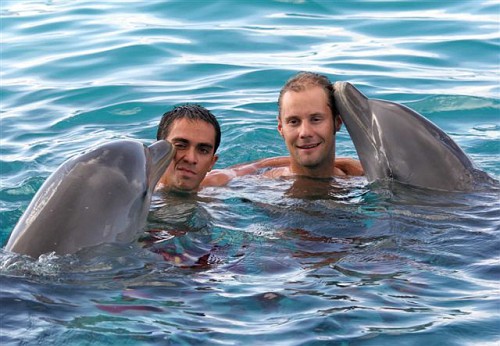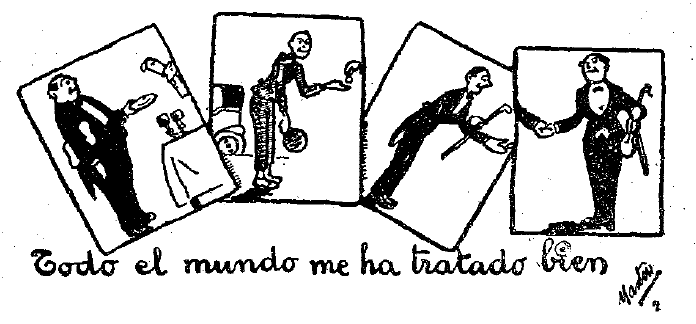
| Языки :: Испанский |
| Аудио |

 |
|
 |
|
13 |
Español |
Spanish |
| Lección Tercera (3ͣ)) | ||
|
C before e and i is sounded like the English hard
th in think. The Andalusians and Argentines pronounce c like s; we shall indicate the Castilian c by th. It is in order to avoid starting by these explanations that we called our first two lessons readings |
||
| Dos semanas después | Two weeks after | |
|
In después, pués counts for one syllable; the sound of é dominates that of u (oo). |
||
| 1 | ¡Que veo! No te has marchado? ¿Tu director no te ha permitido... |
what (do I) see? you have not left? your director has not permitted you... |
| 2 | Sí, hombre, sí; me he marchado; he visto Paris; me he divertido mucho; todo el mundo me ha tratado bien... |
Yes, yes, indeed; (I) have left; (I) have seen Paris; (I) have diverted myself, much; everybody [all the world] has treated me well. |
| 3 | ¿Por qué has regresado tan pronto? | Why [for what] have you come back so quickly? |
| (Do not soften the s in regresado). | ||
| 4 | ¿Por qué he regresado tan pronto? ¿No lo adivinas? |
Why have (I) come back so quickly? (Do you) not guess it? |
| 5 | No lo adivino... ¡Caramba! ¿te ha faltado dinero? |
(I do) not guess it; By Jove! You were short of money [money has failed you] ? |
| 6 | Claro, hombre. | Of course,, then! [clear, man]. |
|
Claro is one of the words that you will hear oftenest in current
conversation, with the meaning of : Of course, certainly! You're right! Stress the first syllable strongly. A propos of stress, we advise you to read without further delay paragraph 2 of lesson 7. |
